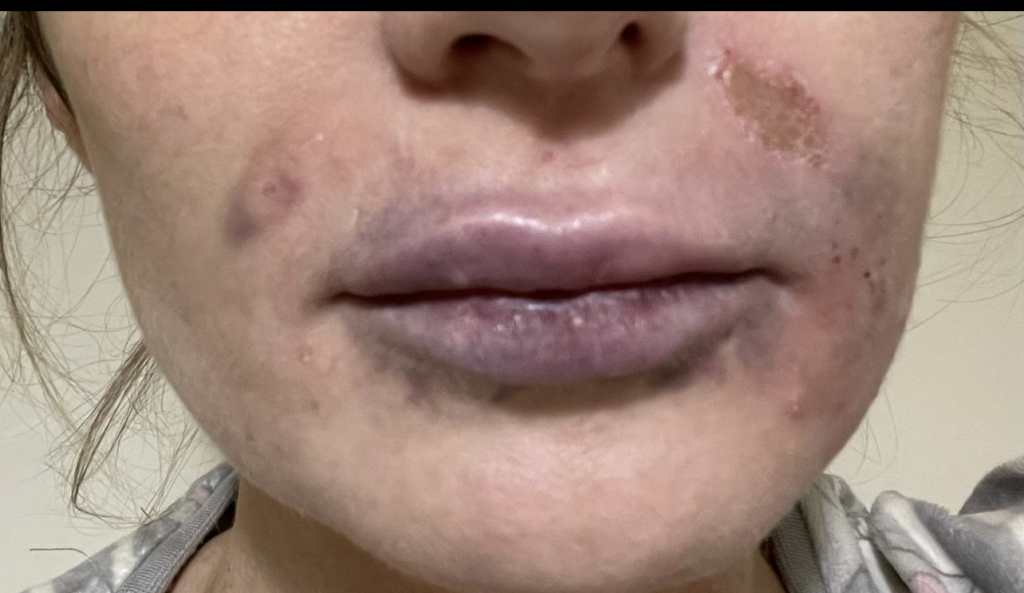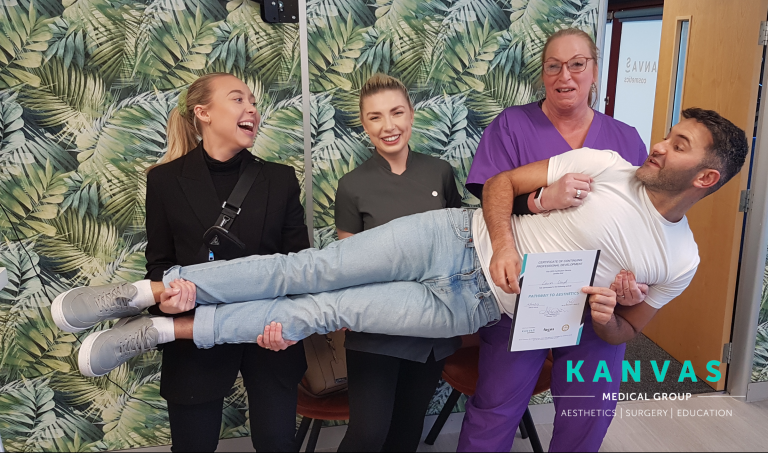Complications are an unfortunate reality of aesthetic treatments. As a practitioner in the field of aesthetic medicine, it’s essential to be well-prepared for handling complications that may arise during injectable treatments like dermal fillers and Botox. As an aesthetic practitioner, it is crucial to understand how to identify and manage complications. At Kanvas Training Academy, we provide our students with comprehensive training on how to prevent, identify, and manage complications.
Here’s a summary of what a practitioner needs to know about complications management:
Facial anatomy: A thorough understanding of facial anatomy, including blood vessels, nerves, and muscles, is crucial for minimizing risks and preventing complications during injectable treatments
Patient assessment: Perform comprehensive pre-treatment assessments, including medical history, contraindications, and potential risk factors, to identify patients who may be at higher risk for complications and make informed decisions about treatment options.
Early detection: Be vigilant in recognizing early signs of complications, such as unusual pain, discolouration, or asymmetry. Schedule regular follow-up appointments and educate patients on potential warning signs.

Management of complications
Table of Contents
ToggleBe prepared to treat various complications, such as:
- Vascular occlusion: Know how to use hyaluronidase to dissolve hyaluronic acid fillers and restore blood flow in cases of vascular occlusion.
- Infection: Understand when to use antibiotics, antiviral medications, or antifungal treatments to manage infections related to injectable treatments.
- Allergic reactions: Recognize the signs of an allergic reaction and administer appropriate treatments, such as antihistamines, corticosteroids, or epinephrine, when necessary.
- Overcorrection or asymmetry: Learn how to dissolve fillers or use additional injections to correct overcorrection or asymmetry issues.
- Legal and ethical considerations: Adhere to legal and ethical standards in handling complications, such as obtaining informed consent, maintaining proper documentation, and addressing patient complaints professionally.
- Continuous professional development: Stay up-to-date with the latest research, techniques, and best practices in complications management by attending conferences, workshops, and advanced training courses. This commitment to ongoing learning will help ensure a high standard of care and enhance patient safety.

Why choose Kanvas Training Academy?
At Kanvas Training Academy, we’re dedicated to providing the highest quality training for aesthetic professionals. Our trainers are experienced, knowledgeable, and passionate about helping you achieve your career goals. We offer a range of training programs, from beginner courses to advanced masterclasses, all designed to help you stay on the cutting edge of aesthetic medicine.
In addition to our expert training, we also offer ongoing support and resources for our graduates, including access to our exclusive online community and discounted products from top industry suppliers.
Want to learn more about this course? Contact Kanvas Training Academy today, or speak to student support at 01784 902832 to learn more about our upcoming Complications Management course and take the first step towards enhancing your career as an aesthetic professional.



